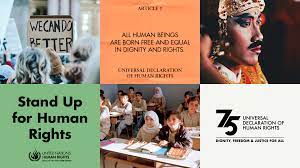Human rights issues are addressed globally through a combination of international organizations, governments, non-governmental organizations (NGOs), and advocacy groups. The United Nations (UN) is a primary entity in the global effort to address human rights concerns. The UN Human Rights Council, established in 2006, is responsible for promoting and protecting human rights worldwide. Specialized agencies within the UN, such as UNICEF and the UN High Commissioner for Human Rights, play significant roles in specific areas.
Governments contribute to addressing human rights by enacting and enforcing laws that protect the rights of their citizens. Bilateral and multilateral agreements and treaties further serve as mechanisms for countries to commit to upholding human rights standards.
NGOs and advocacy groups, such as Amnesty International and Human Rights Watch, play a vital role in monitoring and exposing human rights abuses. They often engage in grassroots activism, raise awareness, and put pressure on governments and international bodies to address violations.

International courts, including the International Court of Justice (ICJ) and the International Criminal Court (ICC), adjudicate cases related to human rights abuses and ensure accountability for perpetrators.
Collectively, these entities form a network of actors working to promote, protect, and enforce human rights globally. The collaboration between governments, international organizations, NGOs, and advocacy groups reflects the shared commitment to upholding the fundamental principles of human dignity and equality.
Read also: Universal Declaration of Human Rights significant